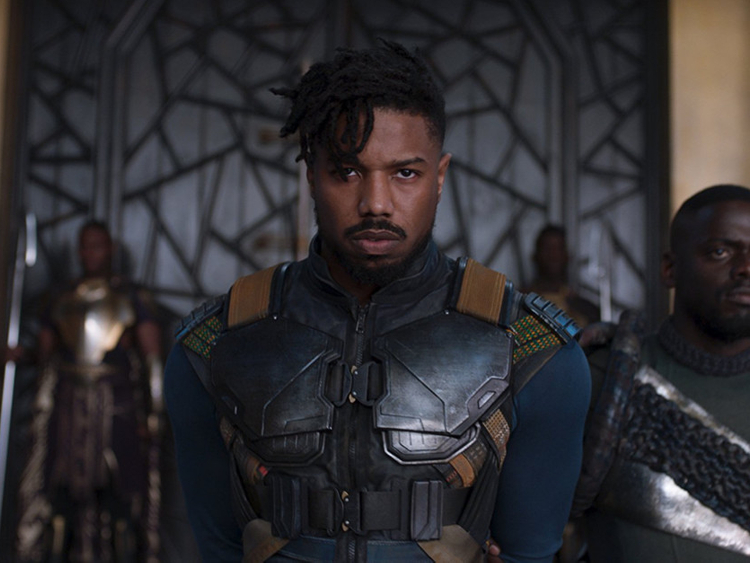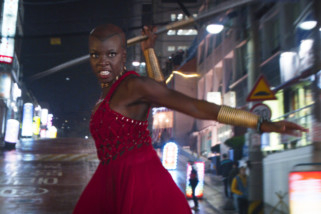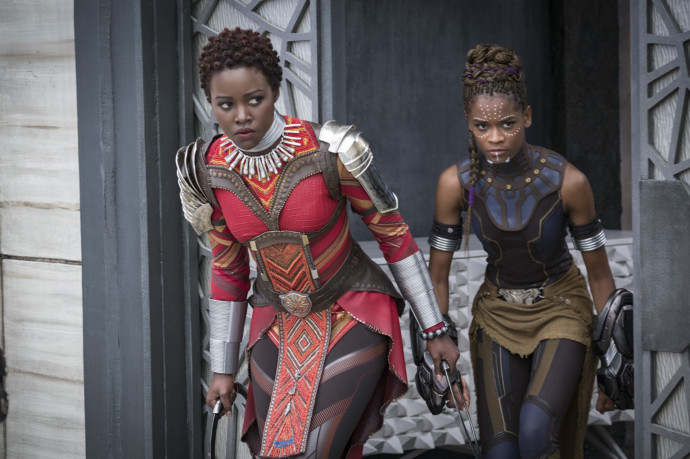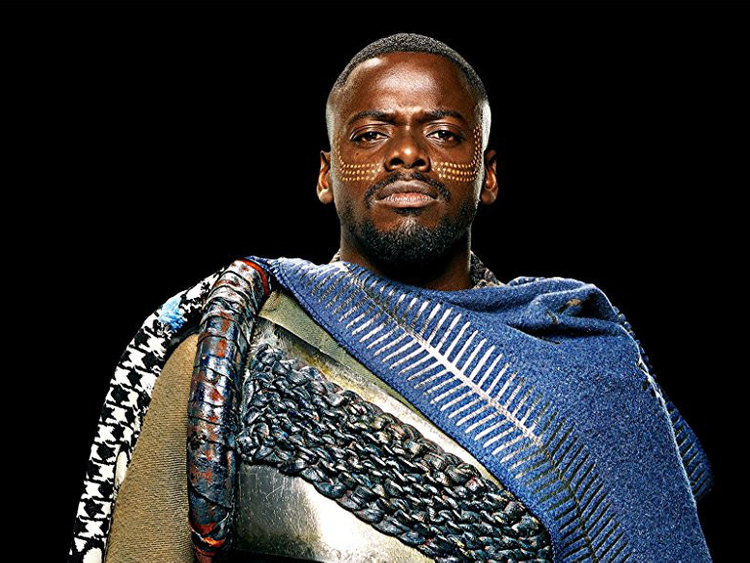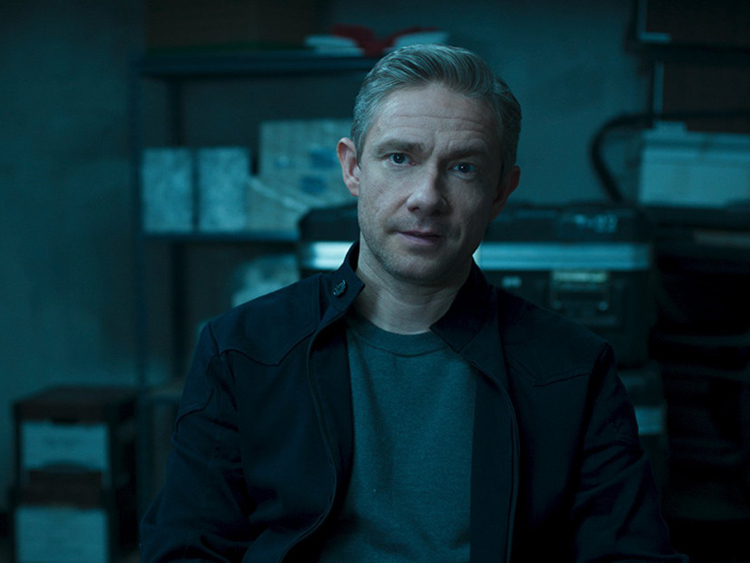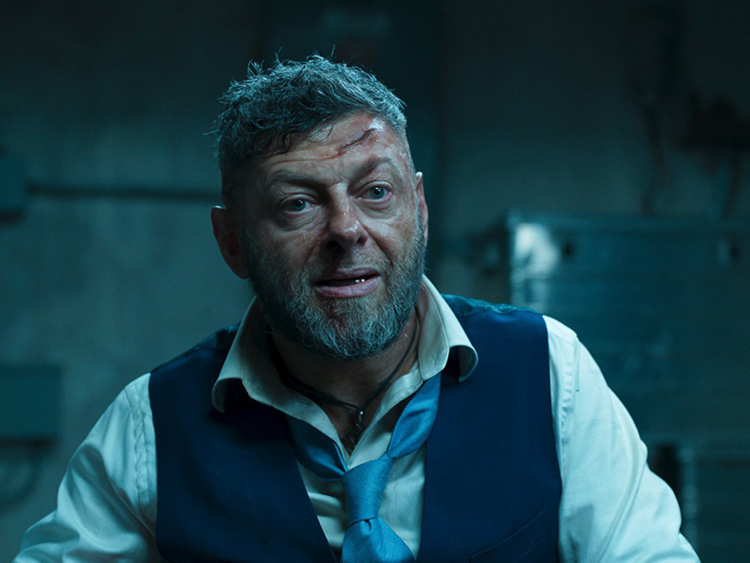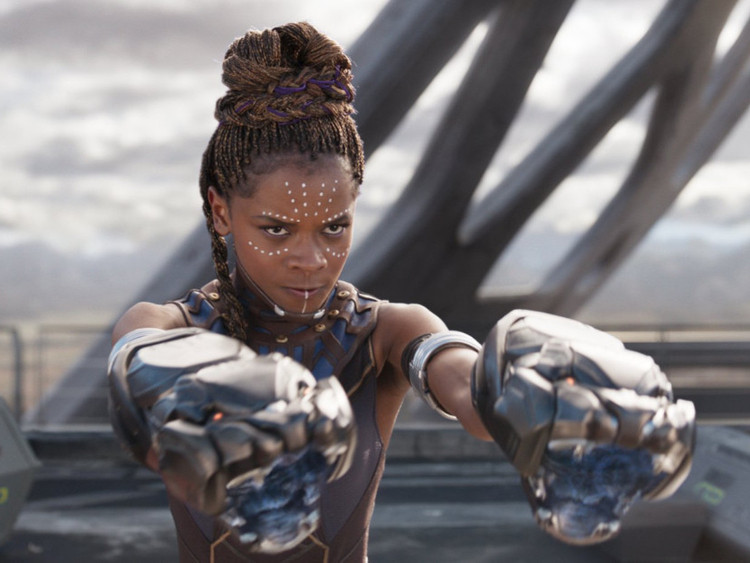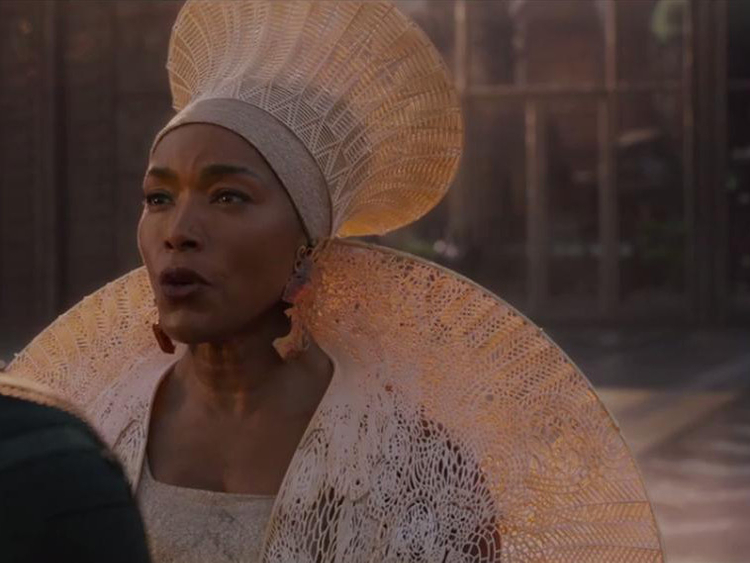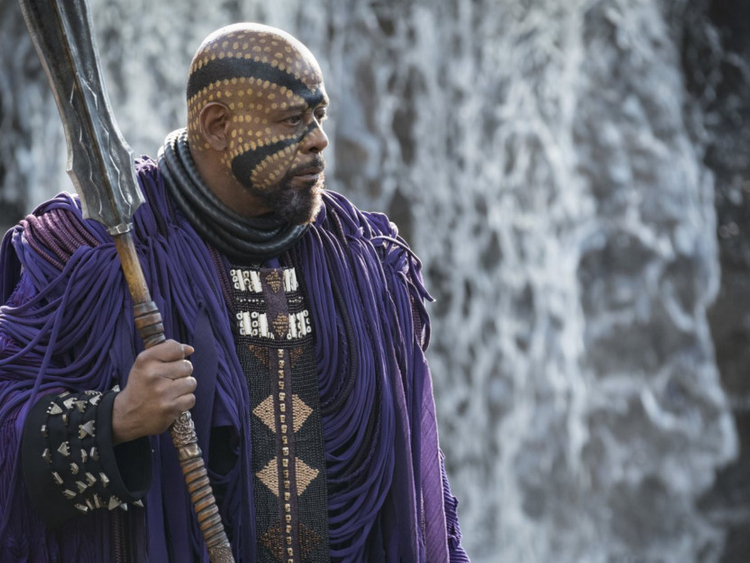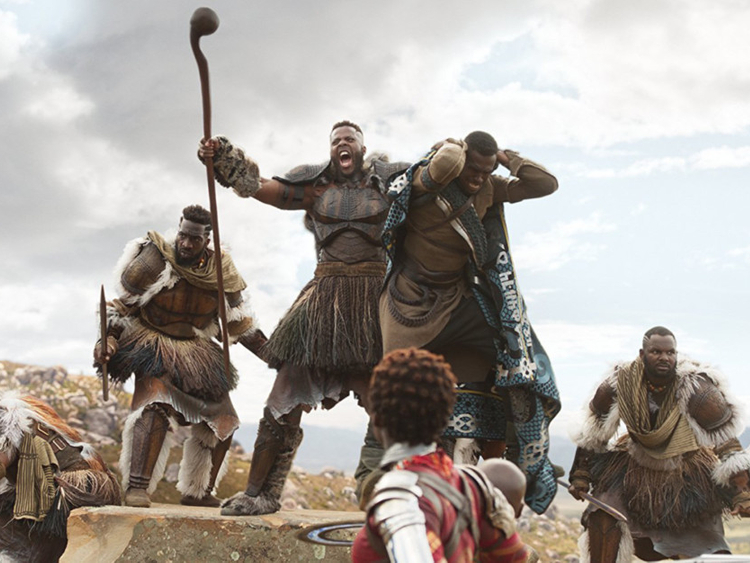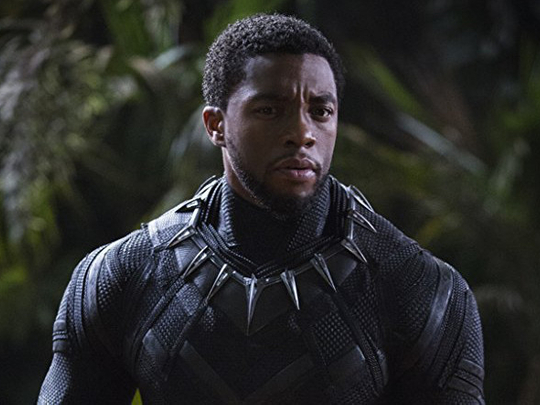
One look at director Ryan Coogler’s Black Panther’s impressive roll call and you know history is about to be made. As Marvel’s first all-black superhero movie, directed by a black man, hits theatres worldwide this weekend, a significant shift will appear in the superhero movie universe that has so far remained #SoWhite.
Already earning praise from film critics all over the world, us included, Black Panther stands poised to change the face of blockbuster storytelling, all while debuting in the middle of Black History Month. And while reports mention that Coogler has stuck close to the comics for source material, especially the run by Ta-Nehisi Coates, significant changes have been made to some of the main characters, bringing approval and critique from diehard fans. As Black Panther gets ready to take his place in the Marvel Cinematic Universe, here’s a spoiler-free guide to his world.
T’Challa/Black Panther (Chadwick Boseman)
Black Panther is the first superhero of African descent in mainstream American comics, having debuted years before early African American superheroes such as Marvel Comics’ Falcon (1969) and Luke Cage (1972). Created by Stan Lee and Jack Kirby in 1966, Black Panther arrived months before the political party Black Panther announced themselves in October 1966. The name Black Leopard was used briefly to avoid any connections to the party, but the name didn’t stick.
In the movie, Chadwick Boseman plays T’Challa/Black Panther, who takes on the Wakandan throne left empty by his father who was killed in a terror attack, seen in the events of Captain America: Civil War. He gains the power of the Black Panther by ingesting the Heart-Shaped Herb, a mystical plant harvested only in his country. Wakanda is an East African nation, hidden from the rest of the world so as to protect their source of vibranium, a valuable metal that allows the country to technologically advance further than any other place in the world. The country is made up of five unique tribes, four out of which bow down to the Black Panther’s benevolent rule.
Erik Killmonger (Michael B. Jordan)
Erik Killmonger was first introduced in the Black Panther comics in Jungle Action Vol 2 in 1973. The son of a Wakandan who was exiled for treason, Killmonger grew up to hate Wakanda and King T’Chaka, T’Challa’s father.
In the film, Killmonger is the son of a Wakandan exile who becomes an American black-ops soldier and seeks to overthrow T’Challa, and open Wakanda’s borders to the world. Killmonger’s bumpy, ritualistic tribal markings seen on his chest and torso resemble the scar tattoos of the Mursi and Surma tribes. In an earlier interview, Jordan described the dynamic between Black Panther and Killmonger as “a Magneto/Professor X type of chemistry.”
Okoye (Danai Gurira)
Created by Christopher Priest and Mark Texeira and first appearing in Black Panther Vol 3 in 1998, Okoye is a member of the Dora Milajae — an order of wives-in-training for the King of Wakanda, who also served as his personal valets and bodyguards. Each member of the Dora Milajae was chosen from a different tribe of Wakanda, a political tradition to ensure peace among the tribes as each held a role in the palace and had a chance to become the next queen. Under T’Challa’s rule though, this role was only ceremonial.
In the movie, Okoye’s role seems to have been merged with another character from the comic books, who was called Aneka, and thus she turns into the leader of the Dora Mijalae, and one of T’Challa’s most important advisers. The decision to merge Aneka and Okoye has upset fans of the comic books, mostly because in the comics Aneka is a prominent lesbian character, and is in a serious relationship with another member of the Dora Mijalae, Ayo (played in the movie by Florence Kasumba). The movie, however, chose to show Okoye as a straight woman.
Nakia (Lupita Nyong’o)
Lupita Nyong’o’s Nakia is a far cry from the Nakia of the comic books. First appearing in comics in 1998, Nakia was another member of the Dora Milaje. Soon, however, Nakia became dangerously infatuated with T’Challa, and went to criminally insane lengths to earn his favour, including attempted murder, which led her to be exiled from Wakanda. At some point, she teams up with Killmonger and gets transformed into the supervillain Malice.
In the movie, all of this back story has been erased to turn her into Black Panther’s ex-girlfriend and primary love interest (in the comics, Black Panther is married to X-Men’s Storm), and also a high-level undercover international spy. In the beginning of the film, she’s seen helping enslaved Nigerian women flee; and she’s also a vocal supporter of using Wakandan technology to help disadvantaged people across the world.
W’Kabi (Daniel Kaluuya)
W’Kabi made his first appearance in Avengers #62 in 1969. Loyal friend to T’Challa, he was the chief of Wakandan security and a trusted warrior, but was wary of outsiders and held an especially deep mistrust of Americans. In the movie, W’Kabi, played by Daniel Kaluuya of Get Out fame, is the head of security for the Border Tribe of Wakanda, who are considered the first of line of defence in Wakanda. He is also the love interest of Okoye.
Everett K Ross (Martin Freeman)
A US State Department employee, Everett K Ross’ job was to escort foreign diplomats on American soil. On one such assignment, he was assigned to T’Challa, and the two became strong allies. According to creator Christopher Priest, Ross’s personality was based on that of Chandler Bing, a character from the television series Friends, and he mainly existed in the comics as comic relief. However, in the movie, his role is considered to be more serious, and his diplomatic and combat skills are expansive.
Ulysses Klaue/Klaw (Andy Serkis)
Andy Serkis finally gets to play a character sans prosthetics with Klaue. A South African black-market arms dealer, smuggler and gangster, Klaw is allied with Killmonger. He also uses a piece of advanced Wakandan mining equipment as a sonic disrupter arm-cannon.
Shuri (Letitia Wright)
Created by Reginald Hudlin and John Romita Jr in 2005, Shuri was originally Black Panther’s half-sister who coveted both, to rule Wakanda, and be Black Panther. In the movie, she plays a more harmonious role, where she works as T’Challa’s technological adviser and is the head of Wakanda’s science division. She’s supposed to be as smart as or smarter than Tony Stark. Although, it doesn’t look like Shuri might take over the Black Panther mantle any time soon, The movie also hides vital clues to Shuri’s larger role in the Avengers, especially the upcoming Avengers: Infinity War.
Ramonda (Angela Bassett)
First introduced in the comics in 1989, Ramonda is the former queen of Wakanda, wife to King T’Cahaka, stepmother to T’Challa and mother of Shuri. T’Challa’s mother died in childbirth. In the movies, however, Ramonda is considered to be the biological mother to both T’Challa and Shuri, and is a trusted adviser to T’Challa when it comes to the ruling of Wakanda.
Zuri (Forest Whitaker)
Zuri is a Wakandan shaman and trusted adviser of the king. In the comics, Zuri, formerly a close friend to King T’Chaka, is a trusted aid and member of T’Challa’s inner circle. In the movies, Zuri’s past relationship with T’Chaka holds a significant link to T’Challa’s present central conflict as Wakanda’s king. Coogler in an interview called Zuri “Black Panther’s version of Obi-Wan Kenobi”.
M’baku (Winston Duke)
M’Baku was originally known as Man-Ape in the comic books and is considered a formidable foe of the Black Panther. M’Baku is the leader of the Jabari people, one of the five tribes that make up the Wakandan empire. However, the Jabari believe the nation has begun to rely too much on technology and have forgotten the ways of its ancestors, and thus live isolated in the snowy mountaintops. Though he doesn’t go by Man-Ape in the movie, M’Baku rules Gorilla City, a region of Jabari, and also makes a reference to Hanuman, the Hindu deity of strength who has the face of a monkey.
Don’t miss it!
Black Panther releases in the UAE on February 15.



